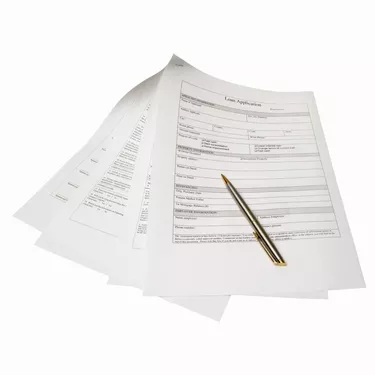
While a small business can protect itself from many risks involved in loaning money to customers or employees by the use of a promissory note, there is always the risk that your borrower will die before she pays off the promissory note. Nevertheless, all is not lost, and you may be able to collect on the promissory note even after your borrower dies through the borrower's probate estate.
Probate & Creditor Claims
Video of the Day
Probate is a court proceeding where a deceased person's probate estate is administered. A probate estate consists of any property that is not automatically transferred to someone else after death, such as a joint checking account. In Arizona, a court-appointed personal representative administers the estate. You can present a claim against the estate to the Personal Representative for the money owed to you. Alternatively, you can commence a court proceeding against the Personal Representative for payment from the estate.
Video of the Day
Deadlines to Present Claim
Regardless of whether you present your claim to the personal representative or commence a court proceeding, asserting your claim is subject to strict deadlines. Generally speaking, you must assert your claim within four months after notice of the personal representative's appointment is first published in a newspaper. If you received actual written notice of the appointment, you have either 60 days after the mailing of the notice or four months after the published notice, whichever is greater. These deadlines may change, so it's important to check the current laws.
Probate and Secured Claims
Debt is either secured or unsecured. A debt is secured if the borrower has pledged property to ensure payment. If your promissory note is secured, you will have a right to pursue the property securing payment. You will need to present your claim to the personal representative of the estate within the deadline required by law. The personal representative will either allow or disallow the claim. If it is disallowed, then you'll have to prove your claim in court.
Probate and Unsecured Claims
If you have an unsecured claim, then you will have to hope that the probate estate has sufficient funds to pay your claim based on the priority the law provides in payment of claims. If the property securing your loan is insufficient to cover the debt, you'll have an unsecured claim to that extent. Just like secured claims, you will have to present your claim to the personal representative of the estate who will either allow or disallow the claim.
Proving Your Claim

You have the right to challenge the personal representative's decision to disallow your claim by petitioning the probate court for allowance. You will have a chance to have a hearing before a judge and present evidence to support your claim. Basically, you need to present the original note and establish that it was executed by the deceased individual and that payment is still due. Keep in mind, however, that if the probate estate is insolvent, an unsecured claim will not be paid even if allowed -- there's no money to pay it.